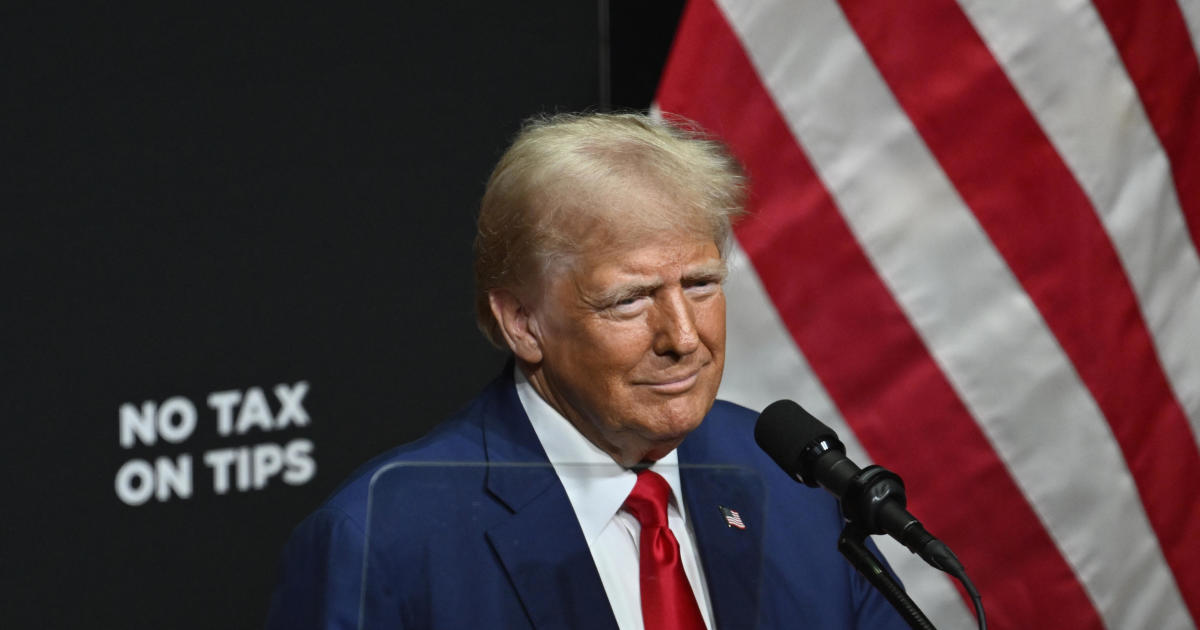The U.S. Secret Service is currently in the process of arranging for former President Donald Trump to resume his outdoor campaign rallies, just a month after a harrowing incident in Pennsylvania where a gunman targeted him. This decision comes in the wake of the Secret Service’s plan to surround Trump’s podium with bulletproof glass, a security measure typically reserved for protecting sitting presidents. The events of the Butler, Pennsylvania rally on July 13, where the gunman aimed shots at Trump, narrowly missing him, have prompted this exceptional precaution. The gunman was swiftly neutralized by a Secret Service sniper after grazing Trump’s ear.
The initiative to implement bulletproof glass around Trump’s podium was set in motion by then-Secret Service director Kim Cheatle immediately following the rally. The Secret Service usually strategically positions personnel in key battleground states to ensure rapid deployment of security measures, such as ballistic glass, to campaign events. While the Secret Service has not officially commented on these reported plans, the heightened security measures are evident in their actions.
Despite the alarming incident at the Butler rally, Trump has remained resolute in his commitment to continue appearing at outdoor rallies. He mentioned that the Secret Service had agreed to significantly enhance its protective measures around him. Prior to the Butler rally, the agency had already intensified security efforts, marking it as the first event of the 2024 campaign where highly trained counter snipers were present to safeguard the former president.
However, the Butler rally was marred by security lapses, leading to Cheatle’s resignation in the aftermath of the assassination attempt on Trump’s life. Acting Secret Service director Ronald Rowe disclosed that there were communication breakdowns between the Secret Service counter snipers and local law enforcement on the day of the rally. This lack of effective communication hindered the timely relay of critical information to the Secret Service as local law enforcement pursued the assailant.
To address the communication challenges faced during the Butler rally, the Department of Homeland Security is collaborating with the Secret Service to establish a committee focused on developing a unified communication channel. This channel aims to facilitate seamless communication between the Secret Service, federal law enforcement agencies, and state and local law enforcement entities assisting the agency. By streamlining communication on a single platform, law enforcement officials can relay information more efficiently and coordinate their efforts effectively.
The panel responsible for implementing the unified communication channel is currently in the process of formation, with support from the Cybersecurity and Infrastructure Security Agency. Heather Fong, DHS Secretary Alejandro Mayorkas’ senior counselor for law enforcement and acting assistant secretary for the Office for State & Local Law Enforcement, will lead the committee. Fong’s experience as a former San Francisco chief of police brings valuable insight to the development of this critical initiative.
Rowe acknowledged that the breakdown in communication among law enforcement agencies on the day of the Butler rally had significant repercussions, resulting in delays in relaying crucial information to the Secret Service. As local law enforcement agencies pursued the gunman, the lack of effective communication channels impeded the flow of vital intelligence to the Secret Service, contributing to the chaotic situation at the event.
Despite the challenges faced at the Butler rally, efforts are underway to rectify the communication gaps and enhance security protocols for future events involving high-profile individuals like former President Trump. The Secret Service’s commitment to safeguarding public figures remains unwavering, as they continue to adapt and evolve their strategies to address emerging security threats.
In conclusion, the Secret Service’s decision to implement bulletproof glass around Trump’s podium and the establishment of a unified communication channel underscore the agency’s dedication to ensuring the safety and security of individuals under their protection. By learning from past incidents and implementing proactive measures, the Secret Service strives to uphold its mission of safeguarding the nation’s leaders and maintaining public safety at all times.









